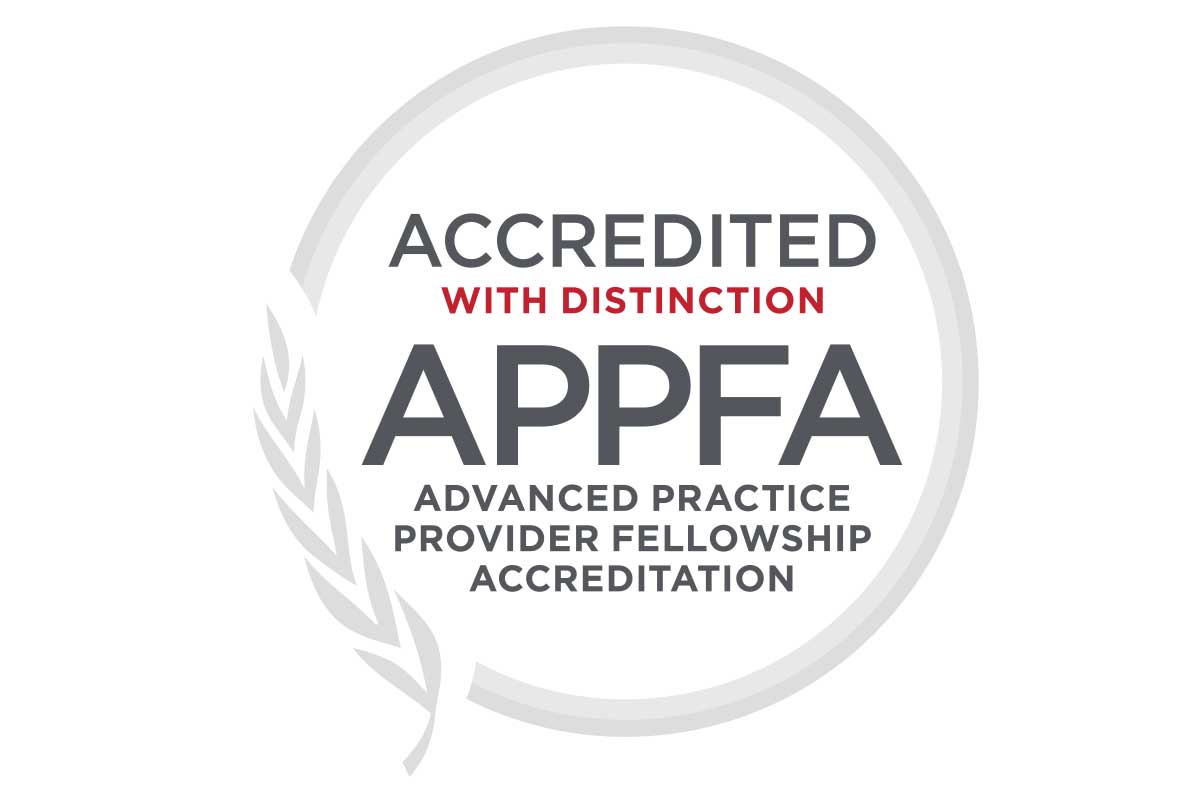
Memorial Sloan Kettering Cancer Center Advanced Practice Provider Oncology Fellowship is accredited with distinction as an Advanced Practice Provider Fellowship Program by the American Nurses Credentialing Center’s Commission on Accreditation in Practice Transition Programs.
Fellowship Background
The Memorial Sloan Kettering Cancer Center (MSK) Advanced Practice Provider (APP) Oncology Fellowship provides nurse practitioners (NPs) and physician assistants (PAs) with the opportunity to train at one of the top cancer centers in the United States. The fellowship began over 40 years ago in hospice and palliative care. In 2020, the fellowship was formally organized into the program that it is today and now accepts APP fellows across up to 10 distinct subspecialty tracks. APP fellows at MSK are mentored by an interdisciplinary team of oncology experts serving patients from around the world.
The APP Oncology Fellowship aims to provide an oncology-intensive post-graduate academic program promoting collaborative, high-quality, evidence-based, and compassionate patient-centered care to a diverse patient population, in alignment with MSK’s institutional mission. APP fellows at MSK participate in clinical skills practicums, simulation experiences, quality improvement initiatives, professional presentations, didactic learning, and clinical rotations on medical, surgical, and/or consultative services. Upon graduation from the fellowship, the APP will be trained to proficiently deliver exceptional comprehensive care to patients with cancer.
Fellowship Overview
Application link will go live at on Monday, March 4. Please note, when applying use your primary/permanent email address.
This is a 12-month post-graduate training program for NPs and PAs who wish to transition into oncology-based care. The fellowship provides support and training during the transition to practice period, allowing fellows to build confidence and knowledge in clinical subspecialties.
The program is open to newly graduated APPs, as well as those with prior experience as an APP. The fellowship is especially well-suited for those looking to gain specialty exposure to oncology and those eager for an immersive learning experience. This fellowship allows for in-depth clinical training while affording protected educational time, which will help develop the APP as a well-rounded and extremely knowledgeable provider prepared to practice patient care in the cancer care continuum.
Throughout the fellowship program, fellows will:
- Develop skills to strengthen critical thinking
- Improve procedural abilities,
- Build the confidence to work within a professional clinical setting,
- Exercise self-directed learning, and
- Utilize and integrate evidence-based practice into patient care.
Unified by the common goal of gaining proficiency in the delivery of comprehensive care to patients with cancer, the MSK fellows follow a core curriculum of oncology-based didactic learning together as a cohort while participating in subspecialty-specific clinical learning experiences.
A strong network of leadership is embedded throughout the program. The fellows will be guided by experienced preceptors, specialty-specific champions, fellowship coordinators, the APP Fellowship Manager, and the Director of APP Quality and Professional Development. Throughout the program, APP Oncology Fellowship leadership will teach self-care and self-reflection skills to promote resiliency and wellness while preventing burnout.
Fellow Clinical Responsibilities Will Include (As Appropriate for Each Subspecialty Track):
- Gathering a comprehensive patient history
- Performing a comprehensive physical examination
- Ordering and analyzing laboratory and diagnostic studies
- Formulating differential diagnoses, offering rationale for clinical decisions, and implementing treatment plans
- Evaluating patient response to treatment
- Coordination of patient care
- Active participation within the interdisciplinary healthcare team
- Accurate and complete documentation of patient encounters
- Performing procedures
- Participation in didactic learning experiences, including projects and presentations